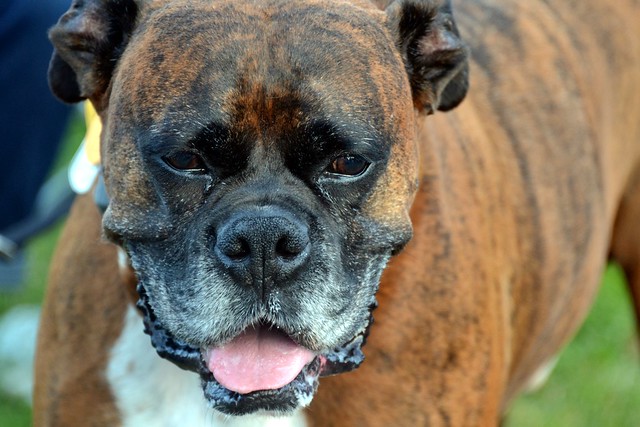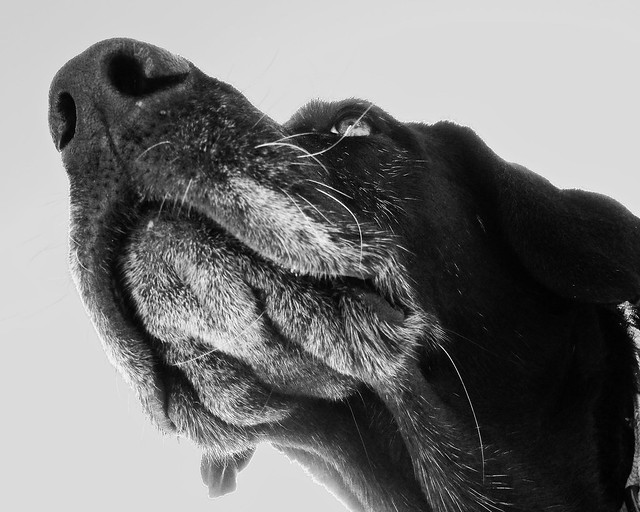 |
| Photo by Tobyotter |
Consider teaching your dog hand signals along with oral commands. Consistency and practice are key to teaching a dog these non-verbal commands. Many owners get annoyed and resort back to oral commands, but a professionally trained dog should understand both. Try utilizing only oral commands when the dog is out of the way range, but when close up, only use the hand signals.
Keep on top of fleas. Not only can fleas give rise to infection in your dog, if you are swallowed, your pet can get tapeworms also. Speak to your vet about the best prevention system, but remember that this is not a single shot deal. You will have to continue your efforts over the life of your pet.
If you have got an interest in providing your dog with the healthiest of diets and making positive contributions to the earth's environment, make his food from scratch. You can buy locally grown organic ingredients and provide him with all of the proteins, carbohydrates, and fats he wants with no preservatives while reducing the waste from packaging too.
Pup
In order to make sure your dog is healthy, be absolutely certain to permit it to have access to clean water at all times throughout the day. Just like with all living beings, water is one of the most vital elements. The sole exception would be that you would want to keep water from a pup for 3 hours before bedtime.
Dogs need frequent check-ups, as well. At regular intervals, your dog desires indications of dog worms testing, vaccinations, and general check-ups. With a puppy, you're going to need to visit your vet a little more frequently. If your dog becomes unwell or is hurt, don't delay in getting him to the vet.
Owning a new young dog is very similar to having a new baby. Puppies need lots of attention and need to be looked after continually. They are not prepared to be left alone for lengthy amounts of time and need to have a fair degree of attention devoted to them.
Treatment
When taking your senior dog to the vet for a yearly visit, be sure to request senior blood work. A blood panel can help your vet to identify any kidney, heart or vascular concerns. If caught early, treatment is often minimally aggressive and less expensive. This is the best way to keep your pet healthy for several years to come.
Your coaching methodologies should only use positive reinforcement. The promise of reward or praise will incentivize your dog faster and agreeably than domination or force. This form of training will give you numerous benefits in the future for your dog. Therefore, be kind when coaching your dog and revel in the great end result!
Don't bathe your dog once you have applied for a flea or tick medicine. Some medications out that they are waterproof, but they only mean against rain or swimming. They will mostly wash away with a dog shampoo, rendering the treatment ineffective. If you've got to wash the dog after a treatment, employ a soap free shampoo.
Not only do you have a chum when you have a dog, but you've also got a responsibility. It's important that you do your utmost to ensure that your dog is well-fed, healthy and happy. You need to make certain that you use the tips here to help so you and your dog both enjoy a good life.
Author: Timothy Huff
|


